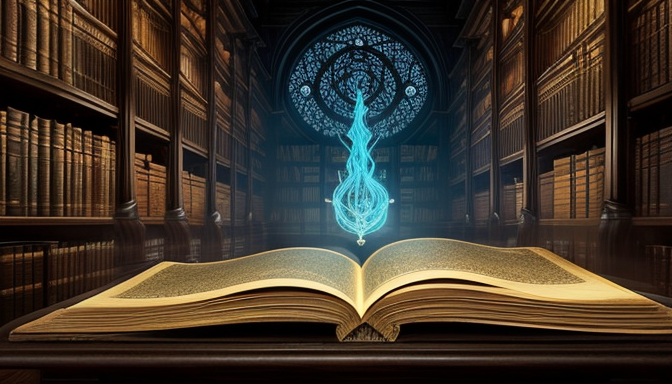Welcome to the enchanting world of fantasy literature, where the rules of reality bend and twist, allowing magic to flourish in the most unexpected ways. As we dive into the future of magic in storytelling, it’s essential to recognize how magical systems have evolved significantly. From the soft magic systems that leave room for mystery and wonder, to the hard magic systems that adhere to strict rules, authors are crafting universes that resonate deeply with readers. Imagine a world where magic is not just a tool but a reflection of the characters’ inner struggles and societal issues.
One fascinating trend is the classification of spells and the intricate traditions that come with them. Writers are now exploring the nuances of magic in their narratives, creating spell classifications that are as diverse as the characters wielding them. For instance, spells can be categorized into various types such as:
- Elemental Magic: Harnessing the power of nature.
- Illusion Magic: Creating deceptions that challenge perception.
- Healing Magic: Aimed at mending wounds and ailments.
These classifications not only enrich the storytelling but also allow for deeper character development. As authors weave in themes of identity and cultural heritage, the magic becomes a metaphor for the characters’ journeys and the challenges they face. This evolution in fantasy literature reflects our own society’s complexities and desires for connection, understanding, and transformation.
[Emerging Themes in Fantasy]
In the vast realm of fantasy literature, emerging themes are reshaping the narratives we love. One fascinating trend is the exploration of environmentalism. Authors are weaving tales that reflect our planet’s struggles, showcasing magical worlds where nature is revered and the consequences of neglect are dire. Imagine a lush forest that thrives on magic but slowly withers as greed takes root—this mirrors our reality and resonates deeply with readers who are increasingly conscious of environmental issues.
Another compelling theme is identity. Fantasy stories are now more inclusive, diving into the complexities of race, gender, and personal journeys. Characters are no longer just heroes or villains; they are multifaceted beings navigating their own paths. This shift allows readers to see themselves in these characters, fostering a deeper emotional connection. For instance, a young sorceress grappling with her heritage can symbolize the struggles many face in our diverse society.
Lastly, multiculturalism is gaining traction. Fantasy worlds are drawing inspiration from various cultures, creating rich tapestries of lore and magic. This not only enhances the storytelling but also educates readers about different traditions and beliefs. Just like a colorful mosaic, these narratives celebrate diversity and promote understanding among audiences. As we venture into the future of fantasy literature, these themes will undoubtedly continue to evolve, captivating our imaginations and reflecting the world around us.
![[The Role of Technology in Fantasy]](https://www.domwiki.org/wp-content/uploads/2025/04/the-future-of-magic-trends-in-fantasy-literature_2.png)
[The Role of Technology in Fantasy]
In the enchanting world of fantasy literature, technology is not just a backdrop; it’s a powerful catalyst that shapes how stories are told and experienced. Imagine diving into a realm where virtual reality allows you to step into the shoes of a wizard or a warrior, feeling the thrill of casting spells or battling mythical creatures as if you were truly there. This immersive experience is revolutionizing the way readers engage with their favorite tales, making the magic feel more real than ever.
Moreover, with the rise of digital publishing, aspiring authors can share their imaginative worlds with a global audience at the click of a button. This democratization of storytelling means that diverse voices and unique narratives are emerging, reflecting a rich tapestry of cultures and experiences. Readers are no longer confined to traditional publishing routes; they can explore a plethora of stories that resonate with their own identities and values.
But what about the magic itself? The classification of spells and the intricacies of arcane traditions are evolving alongside these technological advancements. Authors are experimenting with soft and hard magic systems, creating complex worlds where the rules of magic are as intricate as the technology that supports them. This blend of creativity and innovation invites readers to ponder questions like: How does technology influence the nature of magic? Can it enhance or diminish its wonder?
As we look ahead, the future of fantasy literature is undoubtedly intertwined with technology, opening up endless possibilities for storytelling and reader engagement. The magic of tomorrow isn’t just in the pages of a book—it’s in the very way we experience those stories.
Frequently Asked Questions
- What are the emerging themes in modern fantasy literature?
Modern fantasy literature is increasingly exploring themes like environmentalism, identity, and multiculturalism. These themes resonate with today’s readers, reflecting the societal changes and challenges we face, making the stories more relatable and impactful.
- How is technology influencing fantasy storytelling?
Technology is revolutionizing fantasy storytelling through advancements like virtual reality and digital publishing. These innovations allow readers to experience stories in immersive ways, creating interactive narratives that enhance engagement and broaden the reach of fantasy literature.
- Why should I read fantasy literature?
Reading fantasy literature offers a unique escape into imaginative worlds filled with magic and adventure. It sparks creativity, inspires hope, and often tackles real-world issues through allegory, making it a profound genre for both entertainment and reflection.
- Are there any notable authors to watch in the fantasy genre?
Absolutely! Keep an eye on authors like N.K. Jemisin, Brandon Sanderson, and Sarah J. Maas. They are pushing boundaries and redefining fantasy with their innovative storytelling and diverse characters.

Recent Comments